The 7 Spicy Secrets to Mastering Chicken & Poultry Seasoning (Spoiler: Your Grandma Was Right)
If you’ve ever wondered why restaurant chicken tastes so much better than your own, it’s probably not magic—it’s spice. And more specifically, it’s the right balance of chicken and poultry seasoning. Whether you’re grilling, roasting, or frying, the perfect blend can elevate your bird from “meh” to “more please.”
Table of Contents
- Why Seasoning Matters
- The Core Ingredients of Chicken Seasoning
- Pre-Made vs. Homemade: The Great Debate
- Pro Tips for Perfectly Seasoned Poultry
- Spice Hacks You Didn’t Know You Needed
- Visual Spice Guide: What Each One Does
- Try These Flavor-Packed Blends Tonight
- Final Thoughts
Why Seasoning Matters More Than You Think
Seasoning is the secret sauce of flavor—literally. Without it, even the juiciest chicken can taste bland and boring. Chicken and poultry seasoning isn’t just about making things tasty; it’s about enhancing the natural flavors of the meat while adding depth and complexity.
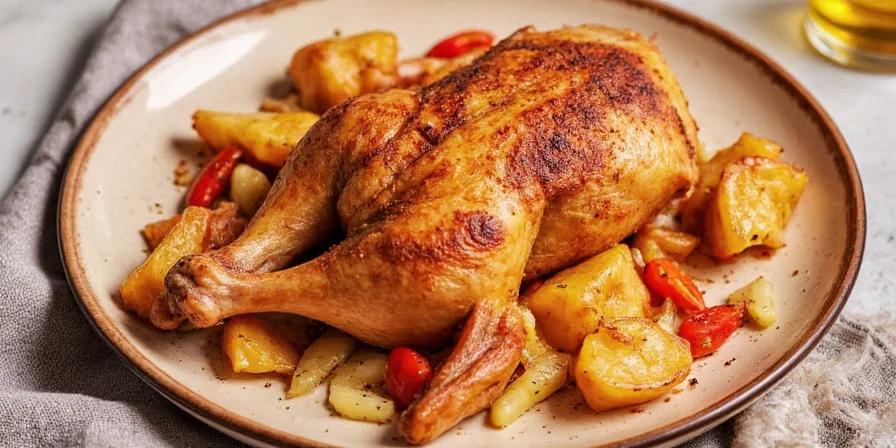
The Core Ingredients of Chicken Seasoning
Most great seasonings start with a strong foundation. Here are the usual suspects:
- Salt: Enhances all other flavors and helps tenderize the meat.
- Black Pepper: Adds heat and bite without overpowering other ingredients.
- Paprika: Gives color and a subtle sweetness or smokiness, depending on the type.
- Garlic Powder: Offers savory depth and umami richness.
- Onion Powder: Complements garlic and adds its own layer of earthy flavor.
- Thyme or Rosemary: Herbs that provide an aromatic backbone, especially good in roasted dishes.
- Cayenne (optional): For those who like a little kick!
Pre-Made vs. Homemade: The Great Debate
| Factor | Pre-Made Seasoning | Homemade Mix |
|---|---|---|
| Convenience | ✅ Easy to grab and go | ⏰ Requires prep time |
| Customization | 🚫 Limited options | ✅ Tailor to taste |
| Cost per Use | 💰 Higher long-term cost | 💰 Cheaper over time |
| Flavor Control | ❌ Unknown ratios | ✅ Full control |
So what’s better? That depends on your priorities. Want convenience? Go store-bought. Craving control? Make your own.
Pro Tips for Perfectly Seasoned Poultry
Seasoning chicken isn’t rocket science, but there *is* some science behind it. Here’s how to nail it every time:
- Brine First (Optional but Genius): Soak chicken in saltwater for 30 minutes to 2 hours before cooking. It makes the meat juicier and allows deeper flavor penetration.
- Rub Generously: Don’t be shy—rub seasoning into every nook and cranny. If you're using skin-on chicken, get under the skin too!
- Let It Rest: Allow seasoned chicken to sit at room temperature for 15–30 minutes before cooking. This ensures even cooking and deeper flavor absorption.
- Baste During Cooking: Brush with melted butter or oil infused with herbs and spices halfway through cooking.
- Layer Flavors: Add spice rubs, marinades, and finishing touches like fresh herbs or citrus zest for maximum flavor impact.
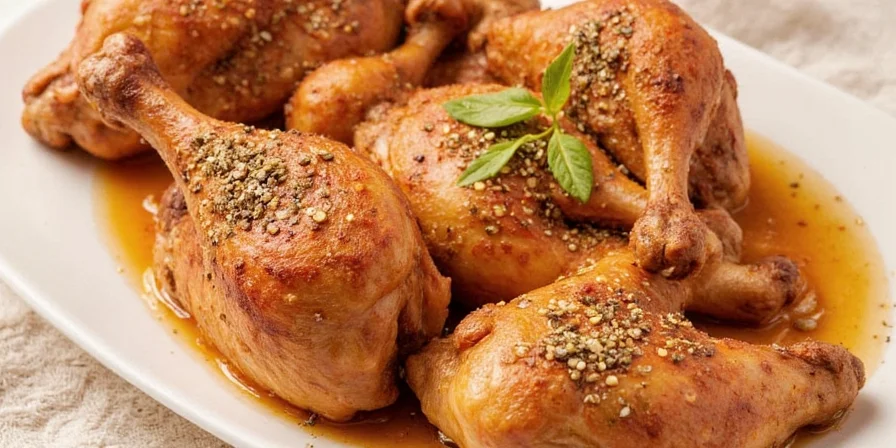
Spice Hacks You Didn’t Know You Needed
Ready to level up your seasoning game? Try these clever tricks:
- Use Lemon Zest: A tiny bit of lemon zest brightens any poultry dish. It’s like sunlight in spice form.
- Add Fresh Herbs at the End: Toss chopped parsley, cilantro, or dill over grilled chicken for a fresh pop of flavor.
- Mix in Ground Mustard: Adds tanginess and helps the rub stick better to the skin.
- Toast Your Spices: Dry toast ground spices in a pan before mixing them into your rub for a deeper, nuttier flavor.
- Try a Coffee Rub: Yes, coffee! It adds rich, earthy notes that pair beautifully with smoked paprika and cumin.
Visual Spice Guide: What Each One Does
To make life easier, here’s a quick visual guide to help you pick the right spices for your next chicken dish:
| Spice | Flavor Profile | Best For |
|---|---|---|
| Smoked Paprika | Smoky, sweet, slightly spicy | Grilled or smoked chicken |
| Cumin | Earthy, warm, nutty | Mediterranean or Mexican-style chicken |
| Cayenne | Hot, fiery, bold | Spicy wings or hot rubs |
| Rosemary | Pine-like, herbal, woody | Roasted chicken or herb crusts |
| Lemon Pepper | Zesty, tangy, peppery | Pan-seared breasts or salads |
| Coriander | Citrusy, sweet, floral | Curries or spice blends like garam masala |
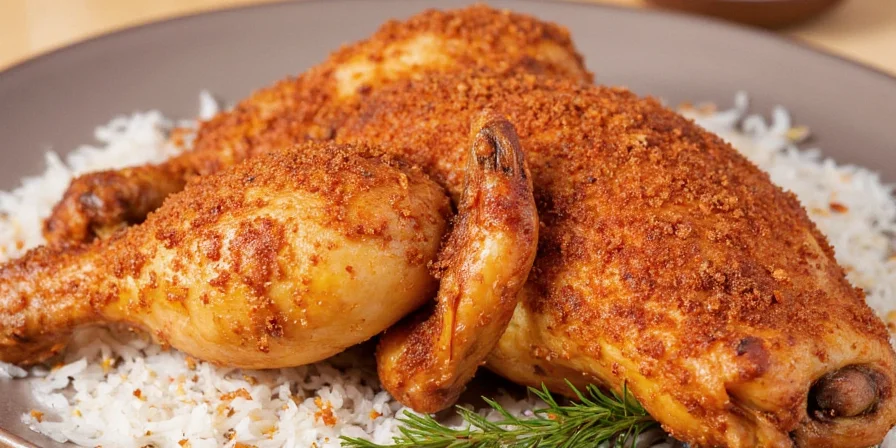
Try These Flavor-Packed Blends Tonight
You don’t have to reinvent the wheel every time. Start with one of these killer combinations:
- Classic Southern Rub:
Salt – 1 tbsp
Black pepper – 1 tsp
Garlic powder – 1 tsp
Onion powder – 1 tsp
Smoked paprika – 2 tsp
Dried thyme – ½ tsp
Cayenne – pinch - Mediterranean Magic:
Salt – 1 tbsp
Dried oregano – 1 tsp
Dried basil – 1 tsp
Crushed red pepper flakes – ½ tsp
Lemon zest – 1 tsp
Olive oil – 1 tbsp (to bind) - Asian Fusion:
Soy sauce – 1 tbsp
Ginger powder – 1 tsp
Five-spice powder – ½ tsp
Garlic powder – 1 tsp
Honey – 1 tsp (adds glaze) - Tex-Mex Fiesta:
Chili powder – 2 tsp
Cumin – 1 tsp
Cayenne – ½ tsp
Garlic powder – 1 tsp
Lime zest – 1 tsp
Coriander – 1 tsp
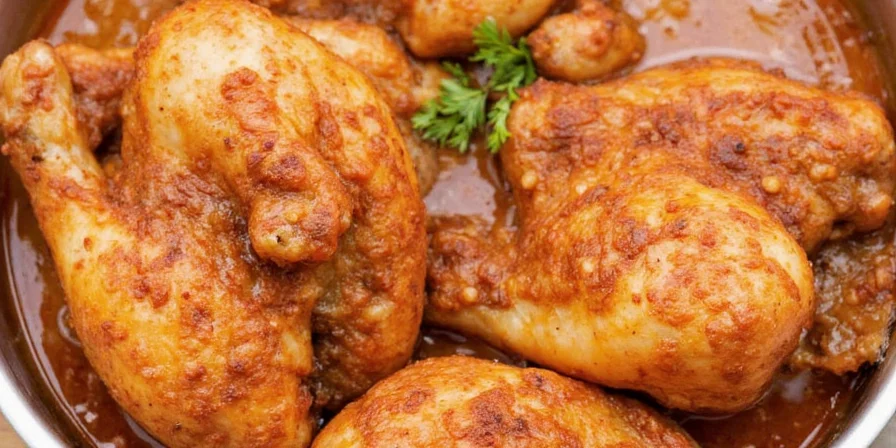
Final Thoughts
Mastering chicken and poultry seasoning doesn’t require a culinary degree—just a curious palate and a willingness to experiment. From basic salt and pepper to complex herb blends, the right spice mix can transform a humble bird into something spectacular.
Remember, seasoning is personal. Don’t be afraid to tweak, adjust, and invent your own signature blend. Keep this guide handy, try new combinations, and above all… keep seasoning like a pro!
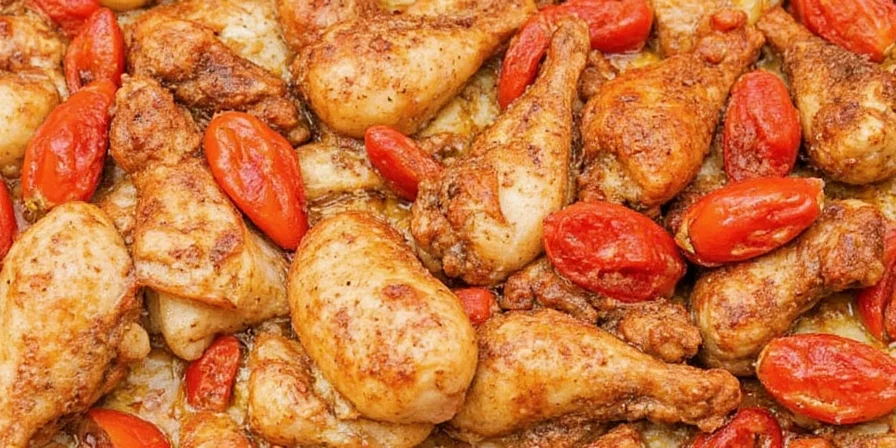
Happy spicing—and bon appétit!

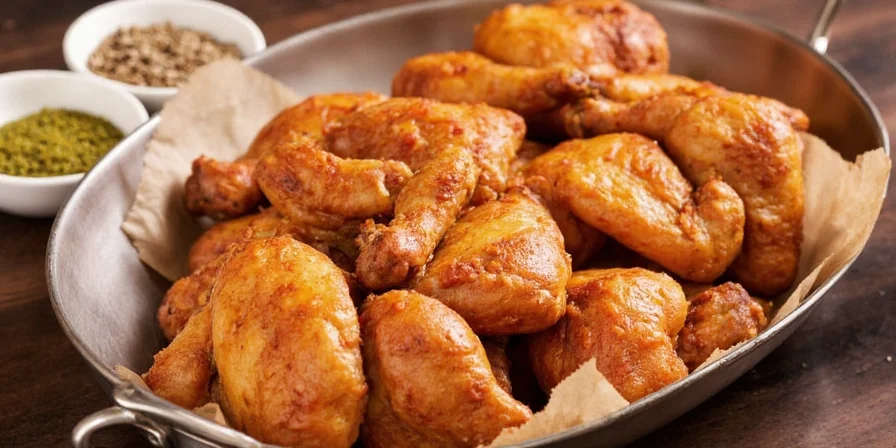









 浙公网安备
33010002000092号
浙公网安备
33010002000092号 浙B2-20120091-4
浙B2-20120091-4